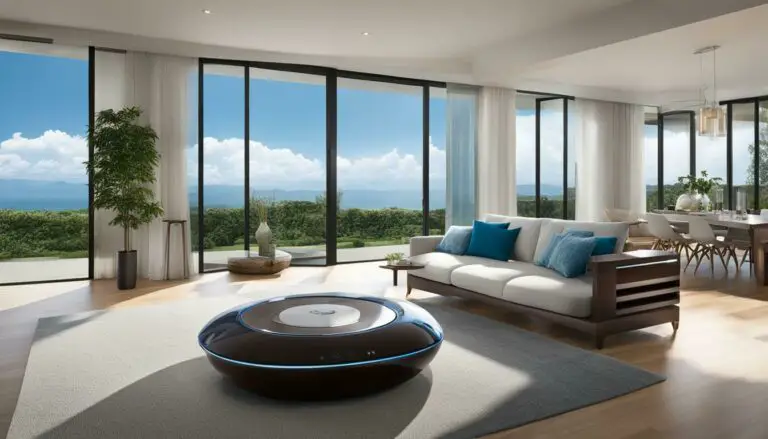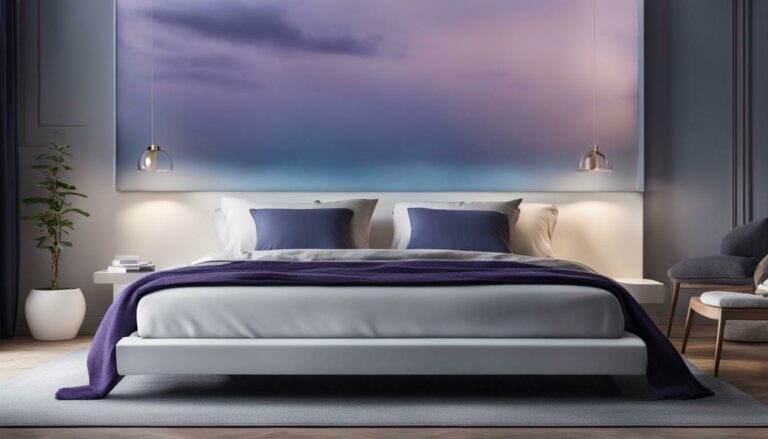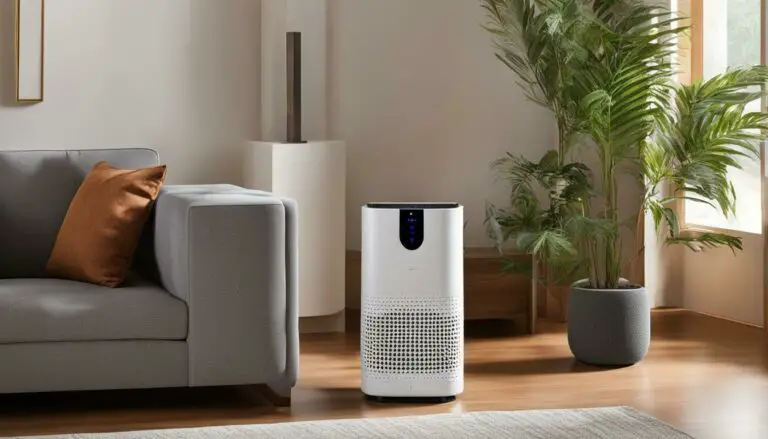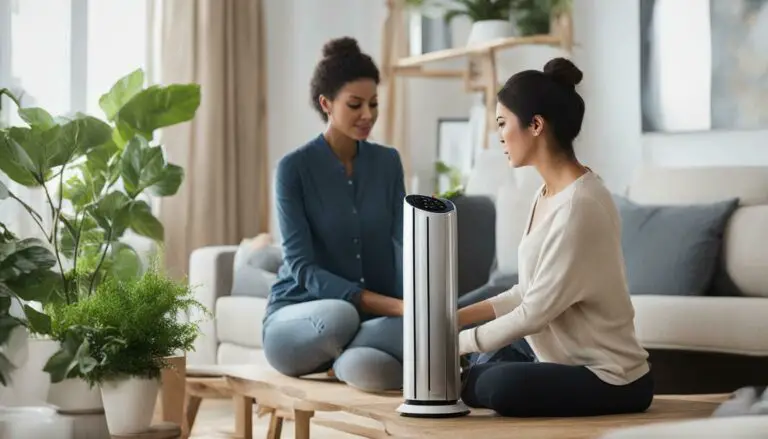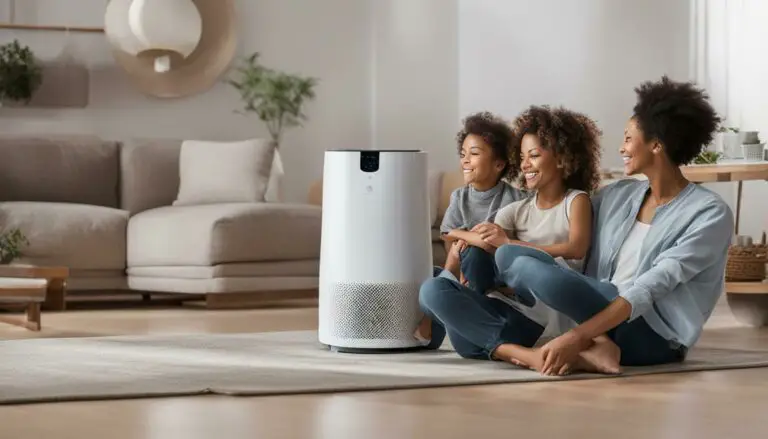Understanding the Basics: What is an Ionic Air Purifier?
An ionic air purifier, also known as an ionizer, is a device that emits electrically charged ions into the air to capture and neutralize airborne particles such as dust, mold, pollen, and other allergens. By releasing these ions, the purifier can cause the particles to become larger and heavier, making them settle faster and stick to surfaces. It is important to note, however, that ionic air purifiers do not physically capture or eliminate these particles from the air.
While they may seem like a convenient solution for improving indoor air quality, it’s important to consider the potential downsides of using an ionic air purifier. Some models can produce small amounts of ozone, a gas that can be harmful to both human health and the environment when present in high concentrations. The effectiveness of ionic air purifiers in terms of reducing allergens and improving air quality is also difficult to measure and varies between different models.
When comparing ionic air purifiers to other air purification technologies, one common comparison is with HEPA filters. HEPA filters are known for their ability to capture particles as small as 0.3 microns with high efficiency. In contrast, ionic air purifiers rely on ionization to neutralize particles without physically removing them from the air. This fundamental difference leads to varying opinions on the effectiveness of each technology.
Ultimately, when considering the use of an ionic air purifier, it is essential to weigh the advantages and disadvantages. While they may be suitable for certain situations, mechanical air purifiers with HEPA filters are often recommended for their proven ability to capture and remove airborne particles effectively.
Key Takeaways:
- An ionic air purifier releases electrically charged ions into the air to capture and neutralize airborne particles.
- These purifiers do not physically eliminate particles but cause them to settle faster and cling to surfaces.
- Some ionic air purifiers may produce small amounts of ozone, which can be harmful to health and the environment.
- The effectiveness of ionic air purifiers is challenging to measure and varies between different models.
- HEPA filters, found in mechanical air purifiers, are often recommended for better air purification.
How Does an Ionic Air Purifier Work?
Ionic air purifiers work by emitting negatively or positively charged ions into the air, which attach themselves to airborne particles and neutralize their negative effects. These ions are produced by an ionization process that occurs within the device. The ionization process involves the use of a corona discharge, which generates a high voltage that ionizes the air molecules. As a result, the air becomes charged with ions that are attracted to particles present in the environment.
Once the ions come into contact with the particles, they bond together, causing the particles to become heavier and larger in size. This change in size and weight makes it easier for the particles to settle on surfaces or be captured by other means, such as through regular cleaning or by mechanical air filters. By neutralizing the airborne particles, ionic air purifiers help to reduce the overall air pollution and improve indoor air quality.
Charged Ions and Their Interaction with Airborne Particles
The ions emitted by ionic air purifiers are usually negatively charged, although some devices may emit positively charged ions instead. These charged ions attract positively or negatively charged airborne particles, depending on their own charge. This attraction causes the particles to bond with the ions, resulting in the neutralization of their negative effects.
It’s important to note that while ionic air purifiers can effectively reduce the concentration of airborne particles, they do not completely eliminate them. Additionally, some ionic air purifiers may produce small amounts of ozone as a byproduct of the ionization process. Ozone, when present in high concentrations, can be harmful to human health and the environment. Therefore, it is recommended to choose an ionic air purifier that meets safety standards and has the option to control ozone emission.
| Advantages of Ionic Air Purifiers | Limitations of Ionic Air Purifiers |
|---|---|
| – Improved indoor air quality | – Difficult to measure effectiveness |
| – Reduction of allergens and pollutants | – Some models may produce ozone |
| – Can be effective in smaller spaces | – Do not capture or eliminate particles |
Ionic Air Purifier vs. HEPA Filter: Which is Better?
When it comes to air purification, consumers often face the dilemma of choosing between an ionic air purifier and a HEPA filter, both of which offer distinct pros and cons. An ionic air purifier, also known as an ionizer, operates by emitting electrically charged ions into the air. These ions attach themselves to particles of dust, mold, pollen, and other allergens, causing them to become larger and heavier. As a result, these particles settle faster and cling to surfaces, reducing their presence in the air. However, it is important to note that ionic air purifiers do not capture or eliminate particles.
While ionic air purifiers can be effective in reducing the concentration of airborne particles, some models may produce small amounts of ozone. Ozone is a gas that can have detrimental effects on human health and the environment when present in high concentrations. Therefore, it is crucial to choose an ionic air purifier that meets safety standards and does not exceed acceptable ozone levels. Additionally, the effectiveness of ionic air purifiers can be difficult to measure, making it challenging to assess their true impact on air quality.
On the other hand, HEPA filters are mechanical air purifiers that use a dense network of fibers to trap and remove particles from the air. These filters are highly efficient and capable of capturing particles as small as 0.3 microns in size. HEPA filters are often recommended for individuals with allergies or asthma, as they can help reduce the presence of airborne allergens and allergenic substances. Unlike ionic air purifiers, HEPA filters do not produce ozone and offer a more reliable method of air purification.
| Factors | Ionic Air Purifier | HEPA Filter |
|---|---|---|
| Particle Removal | Attaches particles to surfaces | Captures particles in filter |
| Ozone Emission | Possible in some models | No ozone emission |
| Effectiveness | Difficult to measure | Highly efficient |
| Suitable for Allergies/Asthma | May provide some relief | Recommended for allergies/asthma |
Ultimately, the choice between an ionic air purifier and a HEPA filter depends on an individual’s specific needs and preferences. If you are concerned about particle removal and want a more reliable and efficient method of air purification, a HEPA filter may be the better option. However, if you are looking for a device that can help reduce the presence of particles on surfaces and are cautious about ozone emission, an ionic air purifier may be suitable. Regardless of your choice, it is essential to consider safety standards and choose a model that is appropriate for the size of the space you wish to purify.
Understanding the Benefits and Limitations of Ionic Air Purifiers
Ionic air purifiers offer several benefits, including the removal of airborne particles and allergens, but they also have certain limitations that need to be considered. These devices work by emitting electrically charged ions into the air, which attach themselves to particles such as dust, mold, pollen, and other allergens. The charged particles then become larger and heavier, causing them to settle faster and cling to surfaces, effectively removing them from the air.
One of the key advantages of ionic air purifiers is their ability to eliminate airborne particles, making the air cleaner and healthier to breathe. This can be particularly beneficial for individuals with allergies or respiratory conditions. Additionally, unlike traditional air purifiers that rely on filters, ionic air purifiers do not require frequent filter replacements, which can save both time and money in the long run.
However, it is important to note that ionic air purifiers do have limitations. Some models may produce small amounts of ozone as a byproduct, which can be harmful to human health and the environment, especially if not properly regulated. Additionally, while these devices effectively remove particles from the air, they do not capture or eliminate them entirely. This means that the settled particles can be stirred up and become airborne again, reducing the long-term effectiveness of the purification process.
When considering an air purifier, it is crucial to carefully weigh the advantages and disadvantages of ionic air purifiers, especially in comparison to alternative options such as mechanical air purifiers with HEPA filters. HEPA filters have been proven to be highly effective in capturing a wide range of airborne particles, including allergens, bacteria, and viruses. They also do not produce ozone, making them a safer choice for indoor air purification.
| Advantages of Ionic Air Purifiers | Limitations of Ionic Air Purifiers |
|---|---|
|
|
Conclusion
In conclusion, while ionic air purifiers can be effective in capturing and neutralizing airborne particles, it’s essential to consider their limitations and explore other options like HEPA filters to ensure optimal air purification.
An ionic air purifier, also known as an ionizer, emits electrically charged ions into the air to attach themselves to particles of dust, mold, pollen, and other allergens. This causes the particles to become larger and heavier, making them settle faster and cling to surfaces.
However, it’s important to note that ionic air purifiers do not capture or eliminate particles. Instead, they rely on the particles settling on surfaces. Additionally, some ionic air purifiers may even produce small amounts of ozone, which can be detrimental to health and the environment.
The effectiveness of ionic air purifiers is difficult to measure, and alternatives such as mechanical air purifiers with HEPA filters are often recommended for better air purification. HEPA filters are capable of capturing smaller particles and can remove a higher percentage of allergens from the air.
When considering an air ionizer, it’s important to weigh the advantages and disadvantages and choose a model that meets safety standards and is appropriate for the size of the space. By considering all these factors, you can make an informed decision on the best air purification solution for your specific needs and ensure a cleaner and healthier indoor environment.
FAQ
What is an ionic air purifier?
An ionic air purifier, also known as an ionizer, emits electrically charged ions into the air to attach themselves to particles of dust, mold, pollen, and other allergens.
How does an ionic air purifier work?
Ionic air purifiers use ionization to charge particles in the air. These charged particles then attach to airborne contaminants, making them heavier and causing them to settle faster and cling to surfaces.
How do ionic air purifiers compare to HEPA filters?
Ionic air purifiers and HEPA filters are both types of air purifiers, but they use different technologies. Ionic air purifiers do not capture or eliminate particles, while HEPA filters physically trap particles in a filter. HEPA filters are generally considered more effective for air purification.
What are the benefits and limitations of using an ionic air purifier?
Ionic air purifiers can help improve indoor air quality and reduce allergens. However, they may produce small amounts of ozone, which can be harmful. The effectiveness of ionic air purifiers is also difficult to measure accurately.

